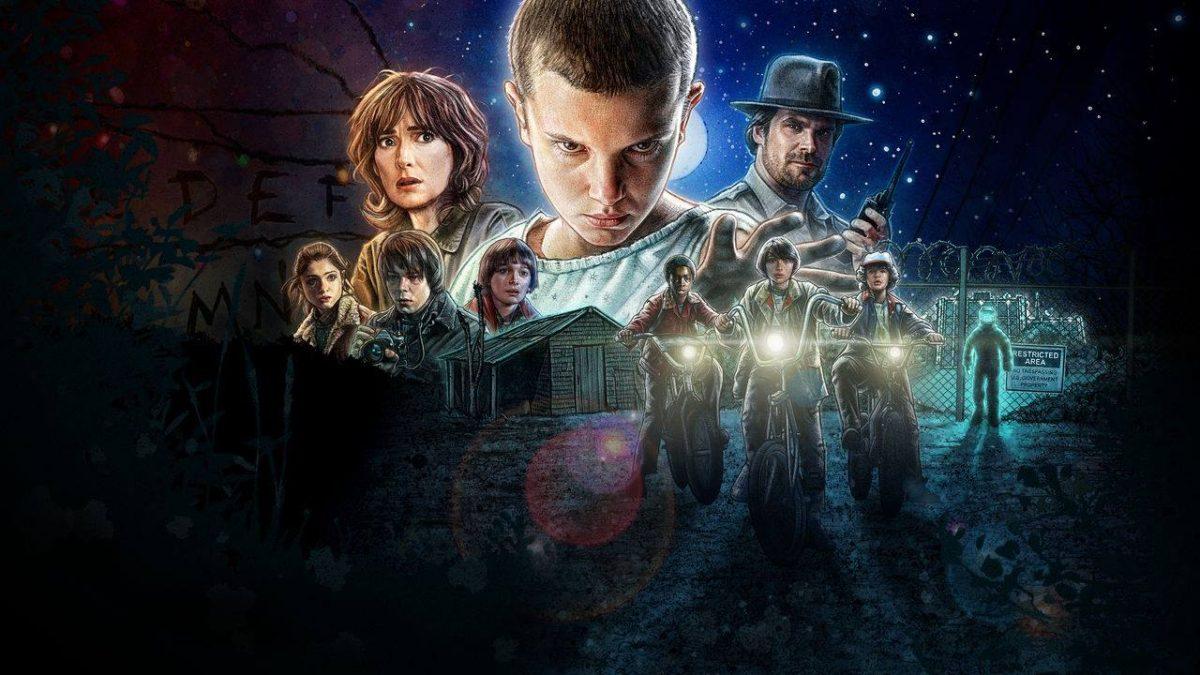facebook.com
Remember what it was like to be a kid? Like, way back–I’m talking before the cellphone, before the car and all a kid had to his name were the clothes on his back, the bike under his butt and the imagination that bounced between his ears.
Yeah, that kid.
Remember the raw fear of it all? Whether it was the dark shadows that hid the unexplainable, the space under the bed or the black void of an open closet, youth exchanged whatever was actually in there, the rational things and replaced them for monsters and creatures.
A time when imagination filled the spaces in idle thought rather than Amazon purchases and phone applications.
It was a good time, but a momentary one, and god how he wishes for a chance to appreciate it again. To revisit it. And I’m here to tell him, he can. Through a little show called “Stranger Things.”
A creation of the Duffer Brothers, Matt and Ross Duffer, “Stranger Things” succeeds in capturing the essence of the Sci-Fi obsessed trends of the 80s, reminiscing its viewers back to the style of movies like “E.T.” and “The Goonies” and never lets up its nostalgic grip during a well-paced, and expertly executed eight episode run.
Starting off, the viewer might notice the stereotypical character tropes that make up the main cast of the show: the gangly squad of geeks that are victims to coincidence, the ominous government bad guys shrouded in mystery and the skeptical authority figure that turns-nose to the whole situation.
But “Stranger Things” and its cast don’t stop there; they go much, much further than that.
The show hits the ground running with the disappearance of Will, one of the neighborhood kids and main characteres. The story methodically unfurls as the rest of Will’s friends uncover what has really happened to their friend. This forever changes the group’s perception on reality and makes them question every piece of evidence they find.
While other shows have tried to cash in on nostalgia, the Duffer Brothers give their characters depth and make them believable by building upon the molds that seem so familiar and push them to a point that feels original and lovable.
Like the endearing Dustin, a member of the main 12-year-old crew, played by the effervescent Gaten Matarazzo, who hoists the sometimes dark and creepy narrative with his comedy and surprisingly intelligible analyses on the situation, all of which are delivered through an incorrigible yet adorable lisp.
And the soundtrack—my God, the soundtrack. Its synth-y main theme plays as the main logo title takes form over your television screen, suspending you in curiosity as to what the next episode has in store.
Its soundtrack teleports you back to a time when bands like Foreigner ran supreme and when “Should I Stay or Should I Go” started playing, you’d head bang all the hair clamps out of your freshly permed hair and waft hairspray to the next county over.
But you wouldn’t care, you were having fun. And I believe ultimately, that’s the main goal of “Stranger Things.” To have fun.
People seem to agree, as the show currently holds a 9.1/10 on IMDb and a 90 percent on Rotten Tomatoes, and in general fansare ranting acclaim for their new favorite show all over social media.
It just goes to show there’s a desire for the kind of feeling “Stranger Things” delivers upon.
Maybe it’s not exactly what the 80s were like–hell, it doesn’t have to be. There are paranormal themes after all—it’s close. But the show can fill the imagination gaps because it does a good job at doing so.
It lets us know that even though we know now what’s actually in those shadows and under our beds, that there’s someone out there that still believes it could be something else.
That the insatiable craving of nostalgia does not prove reality to be boring, just that it should be tested. With thought, imagination and overall fun.



































